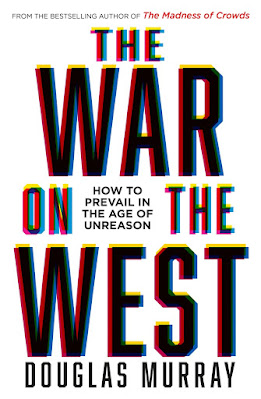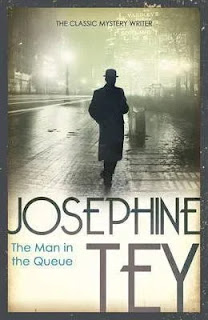The British Library has been reprinting some neglected old British Crime Classics. I counted 99 in my last check. The last time I looked there were about seventy-four books by a variety of authors including Freeman Wills Croft, George Bellairs, E.C.R. Lorac, John Bude and others. They're rather expensive to buy here but I have found a couple secondhand and picked up some more when I was in the U.K .a couple of years ago.
I've enjoyed a few by John Bude and thought this one looked promising so I bought a new copy. I didn’t regret my pick and thoroughly enjoyed this droll, and at times a little dark, crime novel.
The Children of Osiris was a cult created and led by the High Prophet, Eustace K. Mildmann, a widower with an only son, Terence, who was twenty-one years of age at the time of this story.
The cult, adopting the initials of their full title, referred to their doctrine as the Cult of Coo, or Cooism. Their dogmas included a mixture of Ancient Egyptian beliefs and bits and pieces of lesser-known religions with a modern twist.
The Cult of Coo believed in ‘magic numbers, astrology, auras, astral bodies, humility, meditation, vegetarianism, immortality, hand-woven tweeds and brotherly love.’ Mildmann was a sincere, dreamy man who believed Cooism was the key to all life’s mysteries.
‘His best ideas had always come to him when sunk in a self-imposed trance, or, as he pithily expressed it, “during a phase of Yogi-like non-being.” (“Non-being” figured as a very important factor in the Cult of Coo, though nobody seemed able to define its exact significance.)’
When he moved to the trendy Welworth Garden City in the 1940’s he found the right soil for his ideas and before long a group of intellectuals ripe for the picking. When the Hon. Mrs. Hagge-Smith came on the scene she totally embraced Cooism and became Mildmann’s patron and financial backer.
The author spends the first half of the book building the scene for a murder by introducing the various characters associated with the cult; their backgrounds, quirks, ambitions and petty jealousies. The second half of the book is more serious, although it still has some sparks of humour, and it’s here that Inspector Meredith makes his first appearance.
There are some bizarre and baffling circumstances for Meredith to untangle. This book was quite different to The Lakes District Murder, mostly because of the humorous aspects that Bude scattered throughout, but also because the plot didn’t go into intricate details about things that I knew nothing about.
Some of my favourite parts are those that deal with Terence. Here was an athletic, practical young man with the appetite of a horse and the physique of a boxer. He was the very antithesis of his father who ‘had done everything to undermine his normality.’ From clamping down on his tremendous appetite with a strict vegetarian diet, giving him a very small allowance of sixpence a week, requiring him to wear ‘rational clothing’ which included shorts in the middle of winter, and making him a Symbol-bearer in the Temple.
One day Terence met Denise, Mrs. Hagge-Smith’s secretary and immediately fell in love with her. She didn’t mind him either.
‘Terence…shot a quick glance at the miracle in his midst and asked abruptly:
“I say, don’t think this is rude of me, but do you have manifestations?”
“Manifestations?”
It sounded as if he were referring to insects or pimples.
“Yes, you know – astral visions and all that sort of thing. Spirit shapes.”
“No – I can’t say that I do. I dream rather a lot after a late supper. But I’m not at all psychic, if that’s what you mean.”
“I am,” announced Terence, to Denise’s surprise. “I’m always having astral manifestations. I get quite a kick out of it.” His eyes assumed a dreamy expression and then suddenly narrowed, as if he were trying, there and then, to penetrate the Veil. “It’s marvellous sometimes how clearly I see things. They’re so terribly realistic.”
“Things?” enquired Denise. “What things?”
“Steaks mostly. But sometimes its mutton-chops or steak and kidney pudding. I just have to close my eyes, relax my mind and body, and there they are…You think it’s blasphemous of me to see things like that, don’t you? I know it’s not very high-minded, but -”
“I don’t think anything of the sort. I think it’s very clever of you to see anything at all.”
Terence just couldn’t work up any enthusiasm for peanut cutlets and raw cabbage and he confessed to his new-found friend that he went on the binge the week before and spent ten-weeks pocket money on a good feed.
Inspector Meredith always considered this investigation involving the Children of Osiris to be one of the most interesting, bizarre and exacting of all his cases. I thought it was an unusual mix for a murder mystery but very enjoyable.




